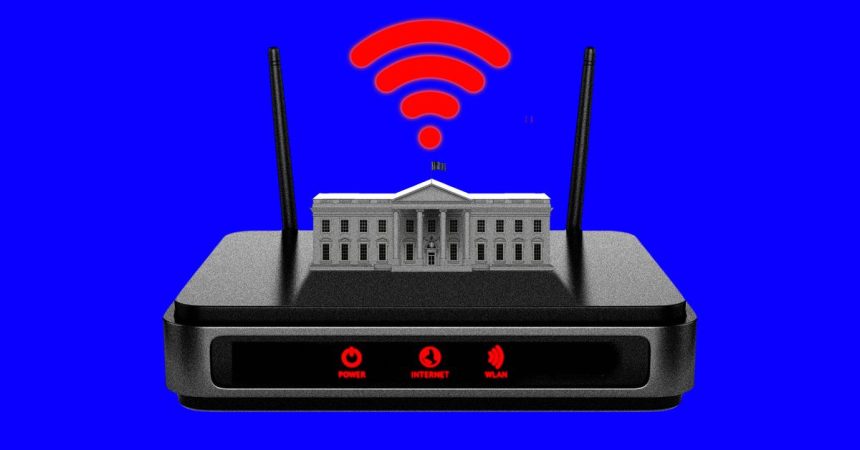The looming threat of a potential ban on TP-Link routers in the United States has cast a spotlight on the escalating cybersecurity tensions between the US and China. The Wall Street Journal reports that multiple US government agencies, including the Commerce, Defense, and Justice Departments, are investigating TP-Link, a Chinese networking equipment manufacturer, over national security concerns stemming from the company’s alleged connection to cyberattacks originating from China. These investigations, which have reportedly included subpoenas issued by the Commerce Department, could culminate in a ban on the sale of TP-Link routers within the US as early as next year, a decision that would ultimately fall to the incoming presidential administration.
The gravity of this potential ban is amplified by TP-Link’s significant market share within the US. Holding an estimated 65% of the market for home and small business routers, TP-Link’s products are ubiquitous, found in countless homes and businesses across the country. This dominance extends even to government agencies, including the Department of Defense, which utilizes TP-Link’s networking equipment. The company’s success has been largely attributed to its aggressively low pricing, a factor that has itself become a subject of scrutiny. The Justice Department is reportedly investigating whether TP-Link employs predatory pricing tactics, selling products below cost in an attempt to monopolize the market, a practice prohibited under US antitrust laws.
Adding further fuel to the national security concerns are allegations that TP-Link has demonstrated a lax approach to addressing security vulnerabilities in its products. Sources cited by the WSJ claim that the company frequently fails to patch known security flaws, leaving its routers vulnerable to exploitation. This negligence is particularly alarming given the increasing sophistication and frequency of cyberattacks, many of which originate from state-sponsored actors. The October disclosure by Microsoft of a compromised network of devices, primarily TP-Link routers, targeted by a Chinese government-linked hacking campaign, underscores the potential risks associated with using the company’s products.
The confluence of these factors – TP-Link’s alleged links to Chinese cyberattacks, its market dominance, the ongoing antitrust investigation, and its purported failure to address security vulnerabilities – has created a perfect storm of suspicion, prompting US authorities to seriously consider a ban. Such a move would represent a significant escalation in the ongoing trade and technology disputes between the US and China, potentially sparking retaliatory measures from the Chinese government. It would also disrupt the US router market, forcing consumers and businesses to seek alternative providers.
While TP-Link has yet to formally respond to the allegations, a spokeswoman for the company’s US-based operations told the Wall Street Journal that they are committed to addressing any security concerns and complying with industry standards. The company welcomes the opportunity to engage with the US government to demonstrate its commitment to security and the US market, emphasizing that its security practices align with industry norms. However, this assurance may not be enough to allay the deep-seated concerns of US authorities, who are increasingly wary of Chinese technology companies and their potential role in espionage and cyberattacks.
The potential ban on TP-Link routers highlights the growing unease in the US regarding the security of its critical infrastructure and the vulnerability of its networks to foreign interference. The interconnected nature of modern society, coupled with the increasing reliance on network-connected devices, makes cybersecurity a paramount concern. This case underscores the delicate balance between economic competitiveness, national security, and the complexities of global trade in an era of escalating cyber threats. The ultimate decision regarding TP-Link’s future in the US market will have far-reaching implications, setting a precedent for how the government addresses similar concerns related to other foreign technology companies operating within its borders. It also underscores the need for robust cybersecurity standards and rigorous oversight to ensure the integrity and security of the nation’s digital infrastructure.



